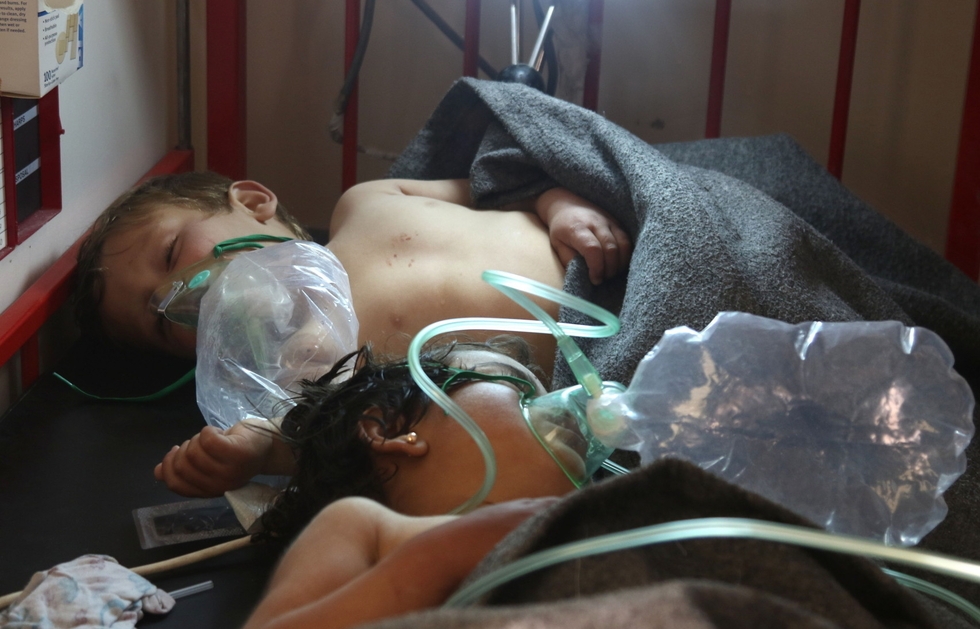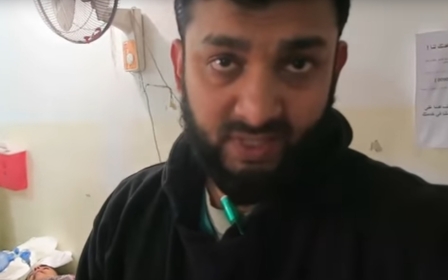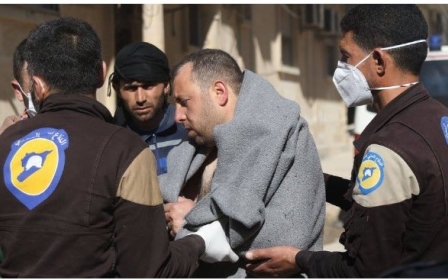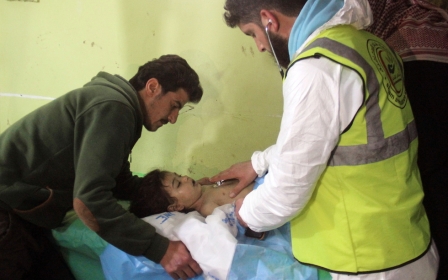UN Security Council to meet on Syria chemical attack

The UN Security Council will hold an emergency meeting on Wednesday to discuss a suspected chemical attack in Syria that has left dozens dead, the US ambassador said.
Britain and France called for the urgent meeting following reports of the strike on a rebel-held town in northwestern Idlib province early on Tuesday.
US Ambassador Nikki Haley, who holds the council presidency this month, announced the meeting at 10am (1400 GMT) on Wednesday to discuss the "terrible chemical weapons attack in Syria".
"We are hoping to get as much information on the Syrian attack as we can," she said.
In Washington, the White House condemned what it called a "reprehensible" and "intolerable" chemical attack in Syria Tuesday and pinned the blame squarely on Bashar al-Assad's government.
White House spokesman Sean Spicer said an "extremely alarmed" President Donald Trump had been briefed extensively on the attack, and suggested it was in the "best interest" of the Syrians for Assad not to lead the country.
"Today's chemical attack in Syria against innocent people, including women and children, is reprehensible," Spicer said, adding that the administration was "confident" in its assessment that Assad was to blame.
Trump faulted Obama for not enforcing a 2012 "red line" against the use of chemical weapons and suggested the attack was "a consequence of the past administration's weakness and irresolution".
US Secretary of State Rex Tillerson, who will visit Moscow next week, said the latest attack underlined the need for Russia and Iran to save the civil war peace process by reigning in their ally's excesses.
He said Assad operates with "with brutal, unabashed barbarism".
"Those who defend and support him, including Russia and Iran, should have no illusions about Assad or his intentions," Tillerson said.
"Anyone who uses chemical weapons to attack his own people shows a fundamental disregard for human decency and must be held accountable."
The attack on the town of Khan Sheikhun killed at least 58 civilians and saw dozens suffering respiratory problems and symptoms including vomiting, fainting and foaming at the mouth, according to the Syrian Observatory for Human Rights.
At least 11 children were among the dead, the Observatory said, and an AFP correspondent in Khan Sheikhun saw many attached to respirators as they were treated for breathing problems.
Raed al-Saleh, the head of the White Helmets, told ABC News that five rockets also hit the volunteer group’s centre in the town, destroying equipment.
"This is clearly a war crime," British Ambassador Matthew Rycroft told reporters at UN headquarters.
"I call on the Security Council members who have previously used their vetoes to defend the indefensible to change their course."
Russia and China in February vetoed a Security Council resolution that would have imposed sanctions on Syrians accused of being behind chlorine gas attacks on villages in 2014 and 2015.
Rycroft said he could not confirm reports that deadly sarin gas may have been used in the attack on Khan Sheikhun.
"I've seen the reports about the use of sarin and as far as I know they have not been confirmed," he said.
UN spokesman Stephane Dujarric said the reports were "extremely alarming and disturbing" and noted that the Commission of Inquiry was looking into the allegations.
"Any use of chemical weapons anywhere constitutes a threat to international peace and security and is a serious violation of international law," he said.
The Organisation for the Prohibition of Chemical Weapons said it was "seriously concerned" by reports of the attack.
And the UN's Commission of Inquiry for Syria said it had begun investigating the "alleged use of chemical weapons".
The Syrian army denied using chemical weapons on Tuesday, insisting "it has never used them, any time, anywhere, and will not do so in the future".
New MEE newsletter: Jerusalem Dispatch
Sign up to get the latest insights and analysis on Israel-Palestine, alongside Turkey Unpacked and other MEE newsletters
Middle East Eye delivers independent and unrivalled coverage and analysis of the Middle East, North Africa and beyond. To learn more about republishing this content and the associated fees, please fill out this form. More about MEE can be found here.




